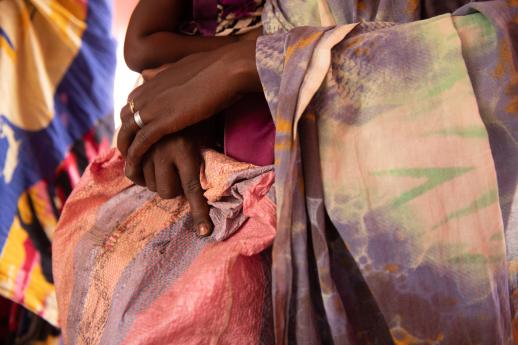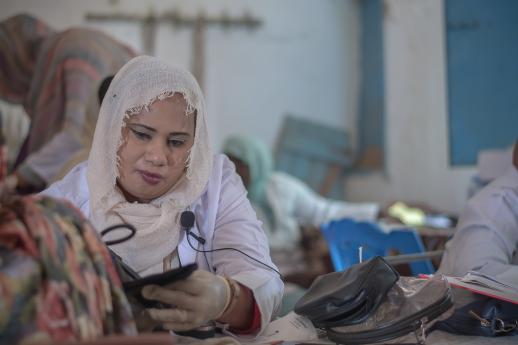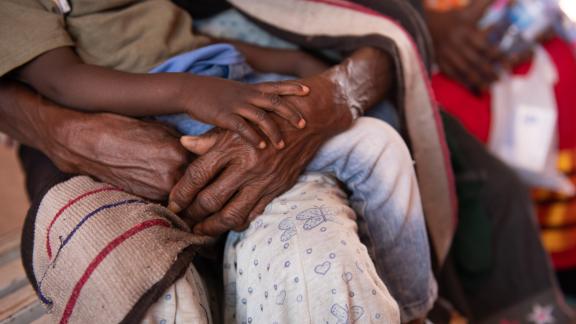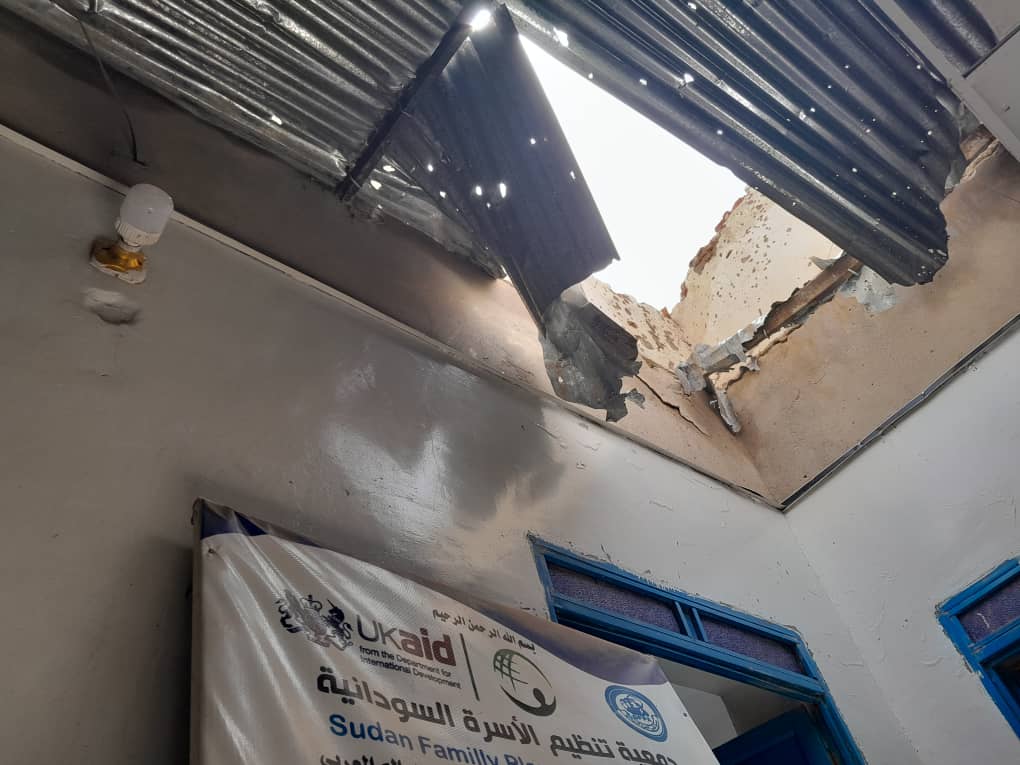Since the start of the brutal armed conflict between the Sudan Armed Forces (SAF) and the paramilitary Rapid Support Forces (RSF) in mid-April 2023, conflict-related rape and sexual violence against women and girls in Sudan has increased significantly.
‘I have witnessed firsthand the impact of this heinous war on our country’s most vulnerable people, including women, girls and other marginalized groups’, said Dr. Hiba Ahmed Khalil Badr, Director of Emergency and Humanitarian Interventions at the Sudan Family Planning Association (SFPA), IPPF’s local partner.
The Rapid Support Forces (RSF) continue to use sexual violence against women and girls as one of the means of warfare in their conflict with the Sudan Armed Forces (SAF). Since April last year, the UN has reported an increase in all types of sexual and gender-based violence (SGBV) including mass rapes, gang rape, domestic violence, sexual exploitation and sexual slavery. Women and girls who are internally displaced are especially vulnerable to sexual violence in temporary shelters, border crossing or while fleeing between states for safety.
The armed crisis has worsened the existing ethnic conflict, especially in West Darfur. The Arab-dominated RSF and allied Arab militiamen have targeted non-Arab communities like the Masalit in West Darfur. They have committed sexual violence against Masalit women and girls, including forced pregnancy, forced prostitution and sexual slavery. They have also specifically targeted local women human rights defenders, subjecting them to rape and sexual violence to punish and terrorize them.
when
country
Sudan
region
Arab World
Related Member Association
Sudan Family Planning Association

UN agencies warn that that there are approximately 262,880 pregnant women and girls in Sudan
IPPF/Hannah Maule-ffinch/SudanRampant sexual violence in Sudan has led to a surge in unplanned pregnancies and sexually transmitted infections. UN agencies warn that that there are approximately 262,880 pregnant women and girls in Sudan, including those displaced from the conflict. Over the next three months, about 45,000 children are expected to be born.
‘Rape victims and survivors are struggling to obtain contraception, abortion medication and post-exposure anti-viral medications. They face severe and life-threatening consequences, including loss of family support and homes /shelters and increased risk of suicide. They are afraid to seek medical treatment because of the stigma and fear of reprisals from rape’, informed Dr. Seham Jaber, SFPA Director of Digital Health Interventions and Services.
As the conflict continues with no end in sight, humanitarian needs are only growing.
Since the start of the conflict, the number of people in need of SGBV services have increased by over 1 million to 4.2 million people in Sudan. This figure is expected to reach 6.9 million by 2024.
In conflict-affected areas, shortages of supplies, interrupted transportation, power and water supply, and attacks on service providers and clients have significantly interrupted the accessibility and delivery of life-saving sexual and reproductive healthcare services.

‘Hospitals have been hit by airstrikes and artillery fire and at least 67% of hospitals in conflict areas are now out of service’, said Dr. Hiba Ahmed Khalil Badr.

Six SFPA facilities have been included in unprovoked attacks, which have destroyed clinics, supplies, medical files and post-abortion care units. The attacks have so far caused the death of one SFPA youth volunteer in Khartoum and injured two clients and one SFPA staff, the doctor at the Nyala mobile clinic.
SFPA staff are risking their lives to provide medical and psychological support to women, including clinical management of rape in safe areas and referrals for survivors of SGBV. In partnership with the Ministry of Health, SFPA has created and shared via social media a database including information about operational midwives and health facilities. This has helped women find health providers that are easier and safer to reach. To promote a culture of respect and consent, SFPA has involved community mobilizers, religious leaders/ local Imams, champions and SFPA youth network and peer educators. These individuals raise awareness and run educational campaigns on SGBV.

SFPA staff are risking their lives to provide medical and psychological support to women
IPPF/SFPA/SudanIn the coming months, SFPA will continue to provide its services for survivors in areas with a large number of internally displaced persons. The services include clinical management of rape, diagnosis and treatment of HIV/AIDS, and other STIs, antenatal and post-natal care, prevention of unintended pregnancies and post abortion care. They are available through SFPA’s static clinics, mobile clinics, mobile team, community-based distributors and 24/7 call center.
The ongoing sexual and gender-based violence in Sudan is only a fraction of the daily suffering faced by women and girls in one of the world's largest refugee crises. Now, more than ever, we must keep our eyes on Sudan.
In the words of Dr. Hiba Ahmed Khalil Badr, ‘Organizations like SFPA, and the many other NGOs, community groups and volunteers on the ground in Sudan must be seen, heard and supported as we navigate this scary and uncertain future.’
Banner credits: IPPF/Hannah Maule-ffinch/Sudan













